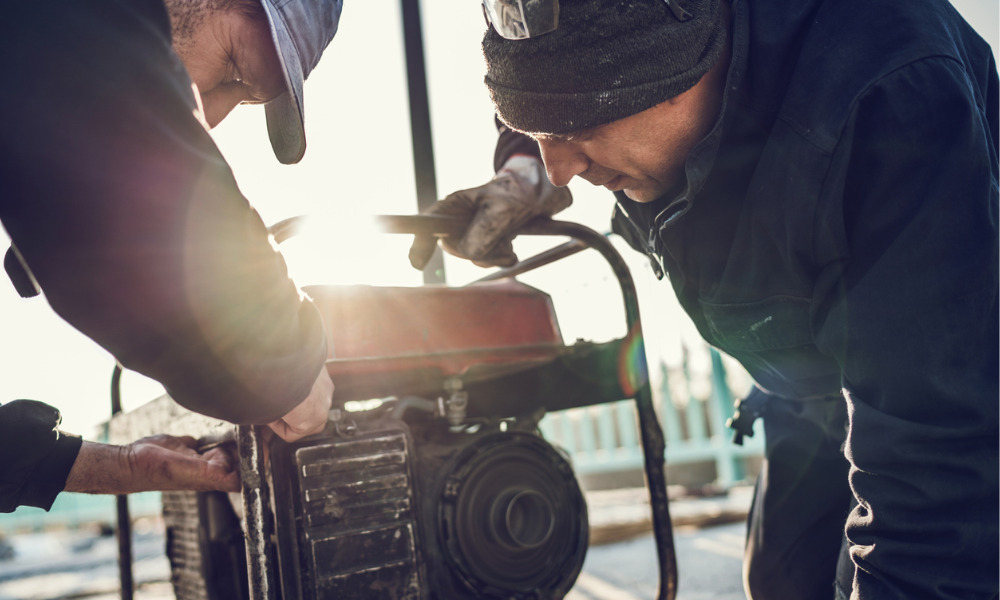How to keep your site and crew safe while using a generator on a construction site

Generators are essential for successfully completing a construction project, especially those that don’t have access to any existing infrastructure. You need electricity for your lights, tools and anything else you need to finish the job — and that means hooking up a generator.
Here are some ways to keep your site and crew safe while using a generator on a construction site.
1. Transport It Safely
Transporting your generator to and from a construction site is the first potential safety challenge. Before you load it onto a truck or trailer, ensure the fuel valve is off and give it enough time to cool down before you start moving it. Once you load it, tie it down securely with straps or bungee cords and cover it with a tarp to protect it from road debris and dust. Make sure it stays upright — flipping your generator over can cause a lot of damage.
2. Connect the Generator Properly
Connecting a generator to a home or building power network can be dangerous if done incorrectly, especially if linemen are working in the area. It can cause dangerous feedback in the local grid. If you’re connecting a generator to a building’s power grid, always use a transfer switch. It works by isolating the circuits you need to direct power to and prevents it from generating feedback and potentially causing damage.
3. Always Use in a Ventilated Area
This is perhaps the most important generator safety tip, even if you’re only using it at home. Always use it outdoors or in a well-ventilated area. Generator engines emit the same exhaust you’ll find in cars and trucks — carbon monoxide, carbon dioxide and other toxins. This isn’t ideal outdoors, but indoors or in unventilated areas, it can be dangerous or even deadly. Avoid using one inside.
4. Limit Time at Maximum Capacity
Each generator has a maximum capacity where it can safely operate. If you exceed that limit, you’ll trip the breaker and shut off the machine. It can be tempting to toe that line, pushing your equipment to the max to try to get as much done as possible, but it’s a bad idea. Try to limit the time you spend using your generator at maximum capacity. This will extend the life of your equipment and prevent breakdowns or other hazards that could also put your crew at risk.
5. Consider Extended Warranty Coverage
New generators usually come with a manufacturer's warranty as part of their asking price, but that won’t generally last the generator's lifespan. It typically spans anywhere from three to 12 months. Instead of worrying about the cost of maintenance and repairs, invest in an extended warranty. Some can last between 12 and 24 months, though you may qualify for protection for as long as 60 months, depending on factors like equipment age and usage hours.
Stay Safe on the Job
Generators may be essential tools for construction, but as with every piece of equipment on your site, you need to keep safety at the forefront of your mind. Luckily most of these tips are easy to remember and simple enough that incorporating them into your operations won’t upset your routines.






